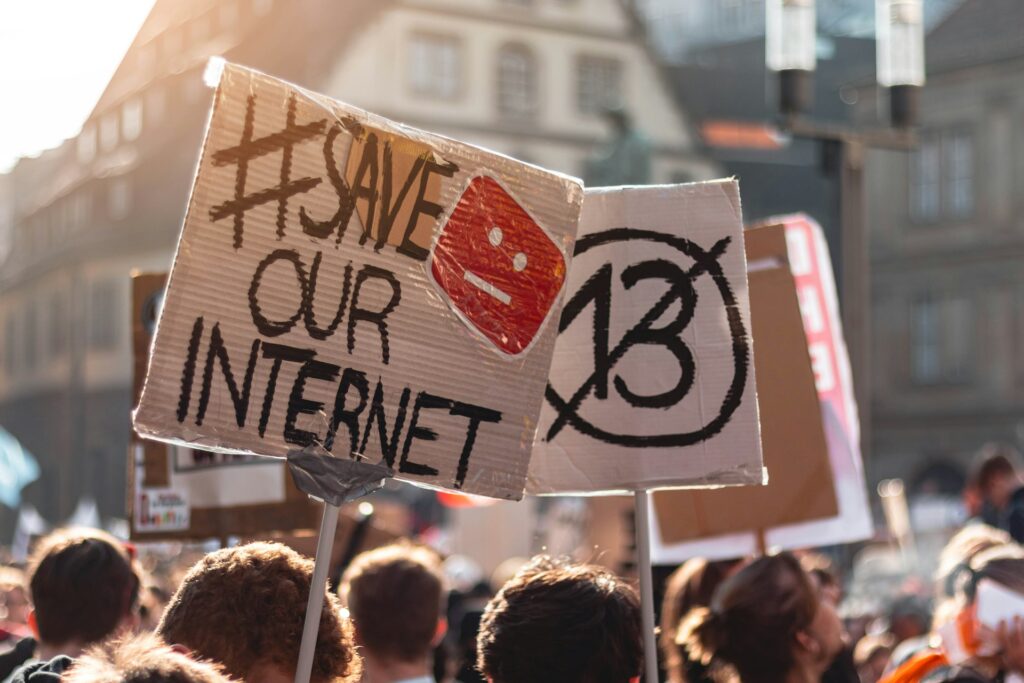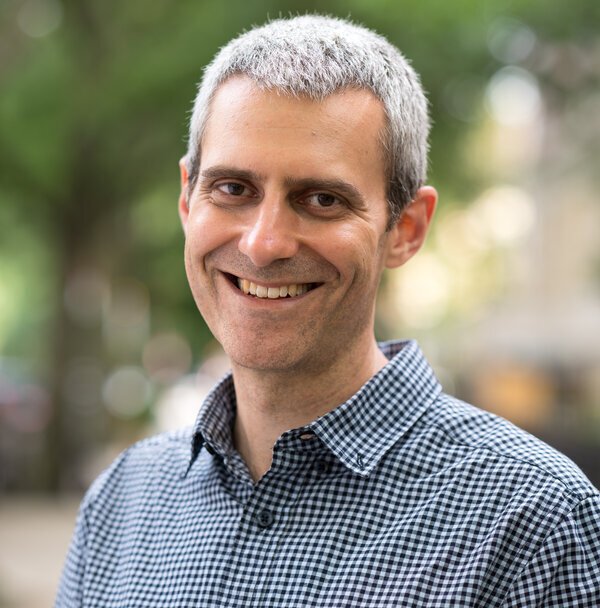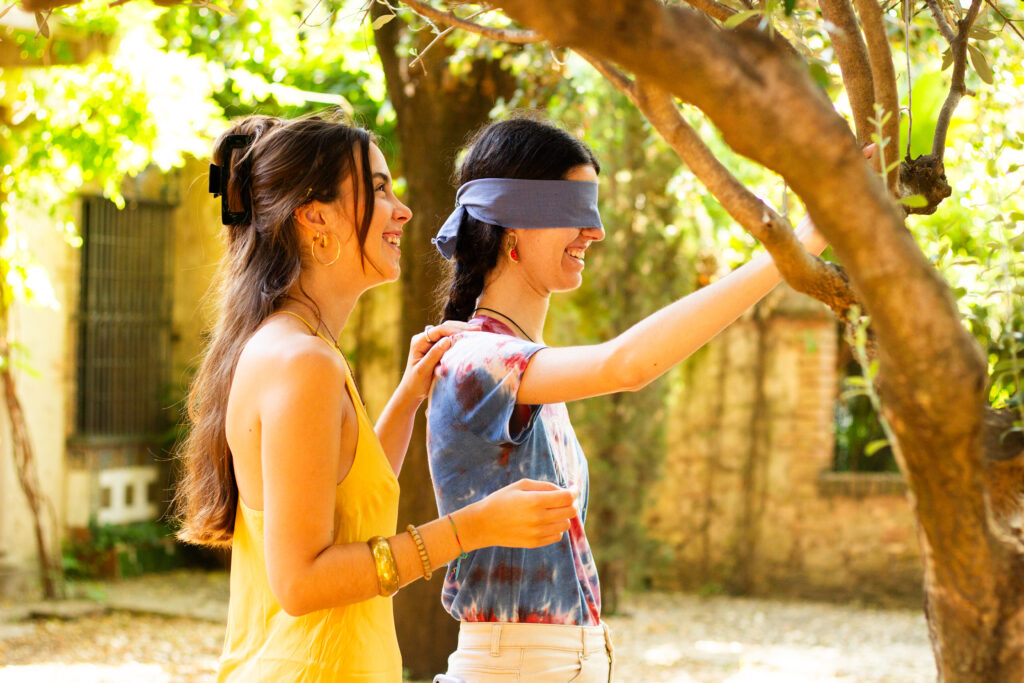We caught up with our newest recruit, Meelika Hirmo, to find out what makes her tick. Or dance, rather? She shares her personal story of growing up during the Singing Revolution and why she joined Citizen OS. We also talk about books and how cooperation could change our democracies.

Photo: Fun in the outdoors with Meelika and her dog Arthur (on the right) and Arthur’s friend Luna next to him. Photographed by Janne Jüsmä.
Welcome Meelika! Great to have you on board. Tell us a little bit about your journey to join us—what’s the path that led you here?
Sometimes I think it started with the Singing Revolution. I know it might sound like a cliché, but I think it impacted me a lot. Being born into an occupation and non-democratic system with horrible generational traumas, it has been a gift and a privilege to see the cultural and political revolution as a child. I witnessed how our small country regained its independence without violence. I don’t think my grandparents’ generation had any hope left that this would even be possible. Seeing how change can happen and experiencing some sort of elevated energy made me civically aware very early on.
I remember when the monetary reform happened in 1992, I was 9 years old and visiting relatives in Setomaa. The news was full of information about how to exchange the Soviet rubles to Estonian kroon (crown) and everything related to the reform. After hearing this, I mobilised all the kids nearby and convinced them not to exchange the little pocket money they had, but instead engage in a ritual funeral of the Russian ruble. Not all the kids were convinced at first, but they soon gave up all their rubles and we buried them all under big concrete blocks deep in the ground, and held a sort of a ceremony to make sure the “ghost” never returned. There was some dancing on the “grave” involved as well, I have to admit. As kids, we then discussed what freedom meant to us, and how something very special was happening.
I would not say I was specifically educated to be like this, I think it was just so strong in the environment and I was absorbed by it. During my university years, I was part of an international youth organisation—later also on the board—through which I participated in and organised youth exchanges and seminars. I then went on to do Erasmus+ European Voluntary Service in Salzburg, Austria for a year.
In my work since, I have always been engaged in public interest and civic society topics, putting communication to work to try to improve our societies. Starting from campaigning to lower the voting age in Estonia (which has now been lowered to 16 for local elections), and ending with international movements like World Cleanup Day—or working to foster integration in Estonia and youth participation in Europe. And as some of the Let’s Do It Foundation and the World Cleanup Day team members came up with the idea for Citizen OS while I was working there, I remember the first discussions and ideations quite well. The working name for it at the time was “Toru”, or “the Pipe” in English.
And what inspired you to take up this role with Citizen OS, as opposed to any other organisation?
When I heard about the opportunity to contribute to the development of an organisation with such a relevant mission, I took some time to think and then decided to accept the challenge. Civic participation has always been so close to my heart and seeing how the democratic space is shrinking, how we are losing or giving away our civil freedoms, and how we are faced with challenges brought by the vast development of media and technology, I could see it is the right fit for me. It feels right, too.
We’d love to get to know you better—what do you get up to when you’re not communicating for Citizen OS?
I love reading, being outdoors, dancing and good movies. I’m also interested in civil society (of course), psychology and public space / urban planning. I do love travelling as well. Just a few months ago my partner and I, together with our dog, returned from a half–year-long road trip across Europe. We volunteered for organic farms with WWOOF and did other simple tasks with Workaway. The rest of the time we just explored and worked remotely. It was great to experience parts of Europe not just as a tourist and “consumer”, but to try and engage differently—and try to give back a bit.
Together with friends, we initiated a book club, which helps to feed my love of reading. So, I’m a bit of a nerd as well. Reading books is also a source of adventure and expansion for me.
Any favourite quotes, mantras or philosophies that inspire you in life, either personally or professionally?
That’s tricky. I’ve always found it hard to pick one quote. But the one I like to refer to time after time is from Emma Goldman, who was a political activist, writer and feminist during the early 20th century. She said: “If I can’t dance, it’s not my revolution.” Emma Goldman is a very interesting historical figure and it’s worth reading more about her. But this sentence also resonates with me because I see that work should include some play—with elements of fun and joy. Also, I like to dance.
One book or film that really changed the way you look at the world, how you work, or how you live your life?
This is tricky too. I can never choose just one. There have been many that have impacted my personal growth and transition during different times of my life, but from recent years, I’d share three books that I’ve read and loved: “Serafima and Bogdan” by Vahur Afanasjev, “Circe” by Madeline Miller and “The Little Girl Who Was Too Fond of Matches” by Gaétan Soucy. The book that left a great impact on me during high school and to which I have returned later in life is “Hundred Years of Solitude” by Gabriel García Márquez.
That was hard, and there are so many more books I would have wanted to share in addition. So I won’t even get started on the films!
What’s your own personal vision of how the world could be, if Citizen OS and other like-minded organisations are successful in their mission?
I think our societies would become more egalitarian, just and connected. And also be more responsible and engaged. There are so many ways to participate and we need the skills to do so. It is sad that so many people don’t feel they can or should engage. I would say that being civically engaged should become a normal habit. Not everyone has to be engaged in the same way but just voting once every few years is surely not enough to maintain and build open and free societies. And the reality is, of course, not everyone is even going to vote. What I wish for is that we can encourage more people and communities to get engaged, become more open and inclusive, and put effort into their own wellbeing as well as the wellbeing of society overall. For this, we need to focus on formal and non-formal education and offer support—so that people can find a way to participate that’s authentic and fulfilling for them. Civil society organisations have a great role to play here, too.
I see the need for like-minded people and organisations to cooperate and support each other, not to compete. The challenges and problems we’re facing have scaled up and there’s no time anymore to continue working in a competitive way, staying in our own bubbles—be they based around some sort of shared privilege, or other economic, cultural, religious or social factors.
Thanks so much! And how can people get in touch if they’re interested in connecting with your work for Citizen OS?
For professional topics, you can find me on LinkedIn, or get in touch by sending an email to meelika@citizenos.com.


